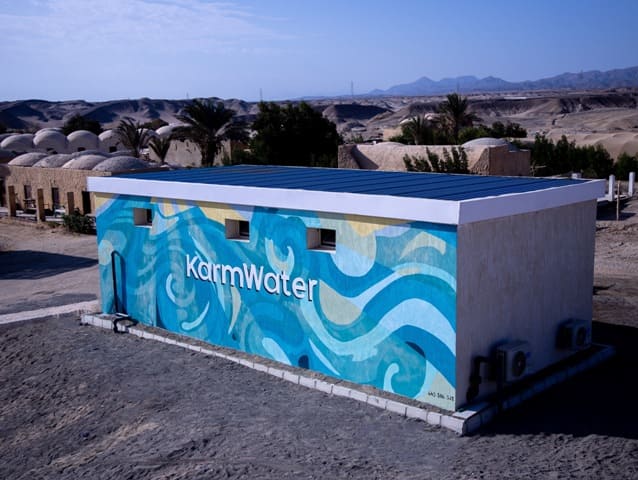SAUDI ARABIA – ACWA Power, along with partners Gulf Investment Corporation and AlBawani Water & Power Company, inaugurated Saudi Arabia's first integrated water desalination-solar PV project, the Jubail 3A independent water desalination plant. The $650 million project, located in Jubail, has a world efficiency record of 2.8 kWh/cubic meter of water using Arabian Gulf Seawater. It integrates a 45.5 MW solar PV power generation facility, accounting for 20% of the plant's energy consumption. The project aims to meet increasing water demands in the eastern region, with a production capacity of 600,000 cubic meters of desalinated water per day. The plant's advanced technologies will reduce carbon emissions by 60,000 tons per year. (SOLARQUARTER)
AUSTRALIA – Rio Tinto is set to invest $395 million in a seawater desalination plant in Pilbara, Western Australia, to ensure future water supply for the company’s coastal operations and local communities. The proposed Dampier Seawater Desalination Plant, subject to government approvals, will be situated within Rio Tinto’s existing iron ore port operations at Parker Point. Initially, it will have a capacity of 10,958 m3/d, with the potential to expand to 21,917 m3/d. Construction is expected to begin in 2024 pending approvals and the project aims for operational status by. Water from the plant will be integrated into the Water Corporation-owned West Pilbara Water Supply Scheme, servicing Rio Tinto’s coastal communities and operations. (Rio Tinto)
BANGLADESH – Bangladesh is providing tax exemptions to encourage the use of solar-powered water desalination in 19 coastal districts facing grid electricity shortages due to declines in coal and fuel imports. The government aims to reduce water production costs and enhance reliance on solar power to address the challenges posed by climate change, including rising sea levels and increased salinity in coastal areas. The tax break eliminates Advance Tax on imported components needed for solar-powered water desalination plants. Australia-based company F Cubed previously secured a government contract to supply 1,140 desalination machines to provide clean drinking water to around 30,000 people in Bangladesh. (PV magazine)
U.S.A. – Consolidated Water has signed a definitive agreement with the Honolulu Board of Water Supply to construct and operate a seawater reverse osmosis desalination plant in Hawaii. The plant will produce potable water from seawater wells and is committed to delivering 6,435 m3/d of potable water to the Honolulu water system on a continuous basis. Over the 24-year base term, the company anticipates generating approximately $204 million in revenue, with nearly $150 million generated during the development, design, and construction phase. This project marks Consolidated Water's 24th seawater reverse osmosis desalination plant and it’s first in the United States. (Seeking Alpha)
EGYPT – KarmWater, the water solutions division of KarmSolar, has inaugurated Marsa Alam's first solar-powered water desalination plant, increasing daily capacity by 50% to 300 m3/day with a 42% improvement in water salinity compared to other sources in the area. The plant, built under a Water Purchase Agreement with Red Sea Diving Safari, aims to meet 100% of the resort's water needs year-round at a competitive price. About 30% of the station's energy consumption is solar-produced, with a goal of reaching 100% within the next decade. KarmWater plans to invest in infrastructure such as pipelines to deliver desalinated water directly to customers and support local agriculture. The company's mother company, KarmSolar, has been featured in the Financial Times' list of Fastest Growing Companies in Africa for two consecutive years. (Africa.com)

KarmWater inaugurates Marsa Alam's first solar-powered desalination plant in Egypt. Credit: KarmWater
NAMIBIA – The Namibian government has acquired land in the Namib Desert to construct a desalination plant, aiming to secure water supply for the central coast and central Namibia. The Erongo Regional Council has donated the land for the plant, located adjacent to the existing Orano desalination plant. The Namibian government is working with NamWater on the desalination plant project, and a study on its viability was submitted to the Cabinet two years ago. The government emphasizes the need for the plant to be operational within 24 months after financial closure, with NamWater currently working on the finance model, procurement, and construction. (The Namibian)
PHILIPPINES – The Metropolitan Cebu Water District (MCWD) aims to provide an additional 25,000 cubic meters of desalinated water to address the gap between water supply and demand in its franchise areas. Pilipinas Water Resources Inc. (PWRI) will contribute 20,000 cubic meters per day, with 10,000 cubic meters each from its desalination plants in Mambaling, Cebu City, and Opao, Mandaue City, starting October 2023. Another desalination plant by Vivant Hydrocore Holdings, Inc. is expected to supply MCWD with 5,000 cubic meters of desalinated water starting in December 2023. (Cebu Daily News)
SAINT KITTS & NEVIS – The Nevis Island Administration (NIA) is undertaking desalination efforts, and construction of a desalination plant in the Butlers area has commenced. The desalination plant will be solar-powered to reduce maintenance costs. The NIA is actively pursuing measures to address water supply challenges caused by prolonged drought in the region. The Nevis Water Department has implemented water rationing due to low rainfall, but recent showers have provided temporary relief. (SKN Vibes)

